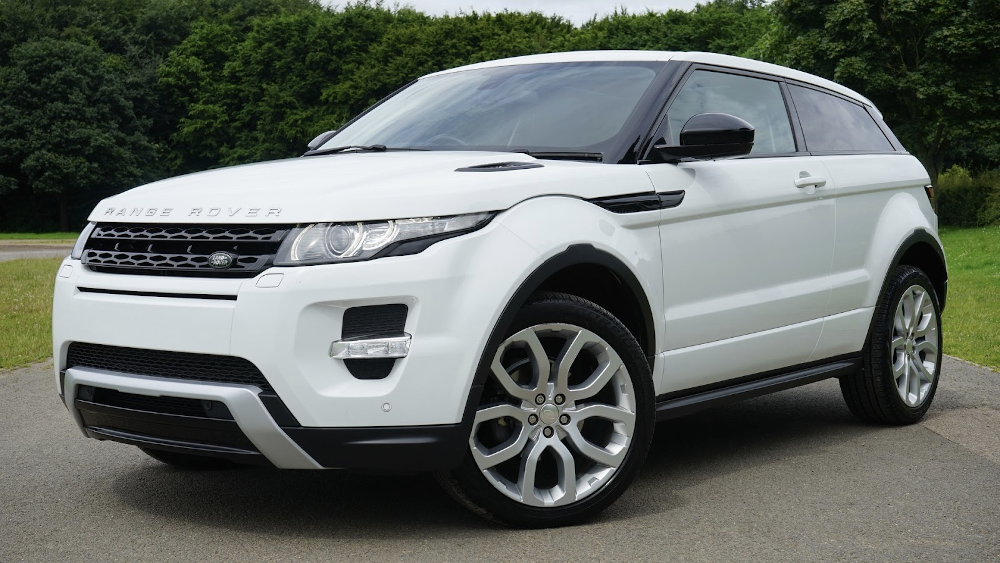Top Tips For Buying a Used Car
Top Tips For Buying a Used Car

We have recently been deciding what to do with our tow car. Having recently bought a motorhome we no longer need a large SUV. It is expensive to run and and is only now used for supermarket trips and commuting. Having made a decision to downsize we have been pondering the choice between a new or used car. In this blog we will look at some tips on buying a used car.
Shopping for used cars is both rewarding and time-consuming. You can find the perfect vehicle for an incredible deal, or you can walk away with a bitter lemon. Either way, it’s worth trying to find a car that meets your needs and squeezes into your budget.
When buying a used car, you can save money on registration and taxes. You will save yourself considerable money on the new price and often come away with a higher spec used vehicle. Cars are becoming more reliable, safe, and well-equipped by the year. You can easily find a good car from two, three, or five years old. Even if a used car has a high mileage don’t discount it.
Here are some tips for when you’re buying your next used car!
Research
There is an abundant option on the internet for used car listings, like Facebook, Auto Trader, AutoTrader, eBay and CarMax. If you don’t do your research, you can be easily scammed by listers. It is essential to be careful if you are making any deals online. Never send any money to a private seller before you ave seen and inspected the vehicle. Online scams are ever increasing, with victims sending thousands of pounds to fake sellers.
You can find mid to high-end cars, filter by year, make, model, features, and price points on most of these sites. This is your chance to determine what you need and what you want. For example, you might want heated seats, but you don’t need them. You can use a website like Kelley Blue Book to research and make a well-informed decision on which car you would like to purchase. The world of click and collect car buying has been they way forward during the pandemic.
Set your Budget
If you have the cash prepared for a used car, you’re in luck. Chances are, you’ll have to take out a loan or finance. Many used cars at dealers do attract a higher finance rate so check out those APR rates. Often a new car is cheaper per month on PCP due to zero APR offers on finance and low deposits.
You can use an auto loan calculator to calculate the best loan for your budget—pro tip: your auto expenses should not exceed 20% of your monthly payments.
You can simplify the buying process by getting pre-approved for a car loan and put yourself in better standing at the car dealership. Be careful of buying above your price point because you can end up losing that new, used car if you can’t make the car payments. Dn’t push yourself too far and remember, finance and loans are usually over several years. Factor in any change to your circumstances.
Look for Reliability
When looking for a used car, you are looking for dependability and reliability. There are brands well-known for their long-lasting vehicles, like Toyota and Honda. However, you will want to inspect the Consumer Reports and maintenance reports for the car you are interested in. This will give you an idea of how much time the car has left to operate—but not always. If you are buying privately you can get the vehicle checked by the AA or a private mechanic. It is a good idea to have a vehicle check by someone who knows more about cars than you. A mechanical fault might not be visible on first inspection and could be costly.
Check Vehicle History
Have you heard of a vehicle history report? You can conduct a vehicle check on a used car. Using the VIN (Vehicle Identification Number) or chassis number, you can request a detailed description of your chosen car’s history. You can do this online in the UK and internationally if you are considering an imported vehicle. Using Carfax or AutoCheck, you can see if the car has been “written-off” or suffered recorded accident damage. If you ever come across the term “salvage title,” it means the car might have hidden problems, and the resale value is nil. Some vehicles that have been damaged will have an category level of damage so check up on this.
When you do check the vehicle history, you can see whether there have been any upgrades that can change the value of the car, too. You want to do an alloy wheel refurb if the wheels haven’t been touched in a while, but there are some upgrades that you may want to wait on. Either way, checking the vehicle history is important so that you can ensure that the car is in the best possible – and legal – condition.
You can check a vehicles mileage to see if it is genuine. The DVLA website enables you to see the MOT history of a car. You want to understand the exchange between you and the previous owner as much as possible.
Test Drive
Lastly, like a new car, you will want to test drive your used car! This is your chance to spot any faulty engineering, determine whether there are any features you don’t like about the car, and how well the features work. You can also choose what’s in your budget to replace, upgrade and fix up yourself.
If you do take a test drive from a private seller make sure you are insured. Your own insurance may well cover you for third party liability but it will bot cover any damage to the vehicle itself.
Warranty
When you buy a used car from a dealer it may have the roll over of the manufacturers warranty. It may have a years warranty from the dealer or it might have a shorter warranty if the car is older or higher milage.
If you buy privately you are unlikely to have a warranty with the car. You can buy a warranty from companies such as the RAC and these offer varying levels of cover. A warranty will usually cover mechanical failures but not wear and tear.
These are just a few simple tips to consider if you are making a used car purchase, either privately or from a dealer. Our own car search continues as we look to downsize.

